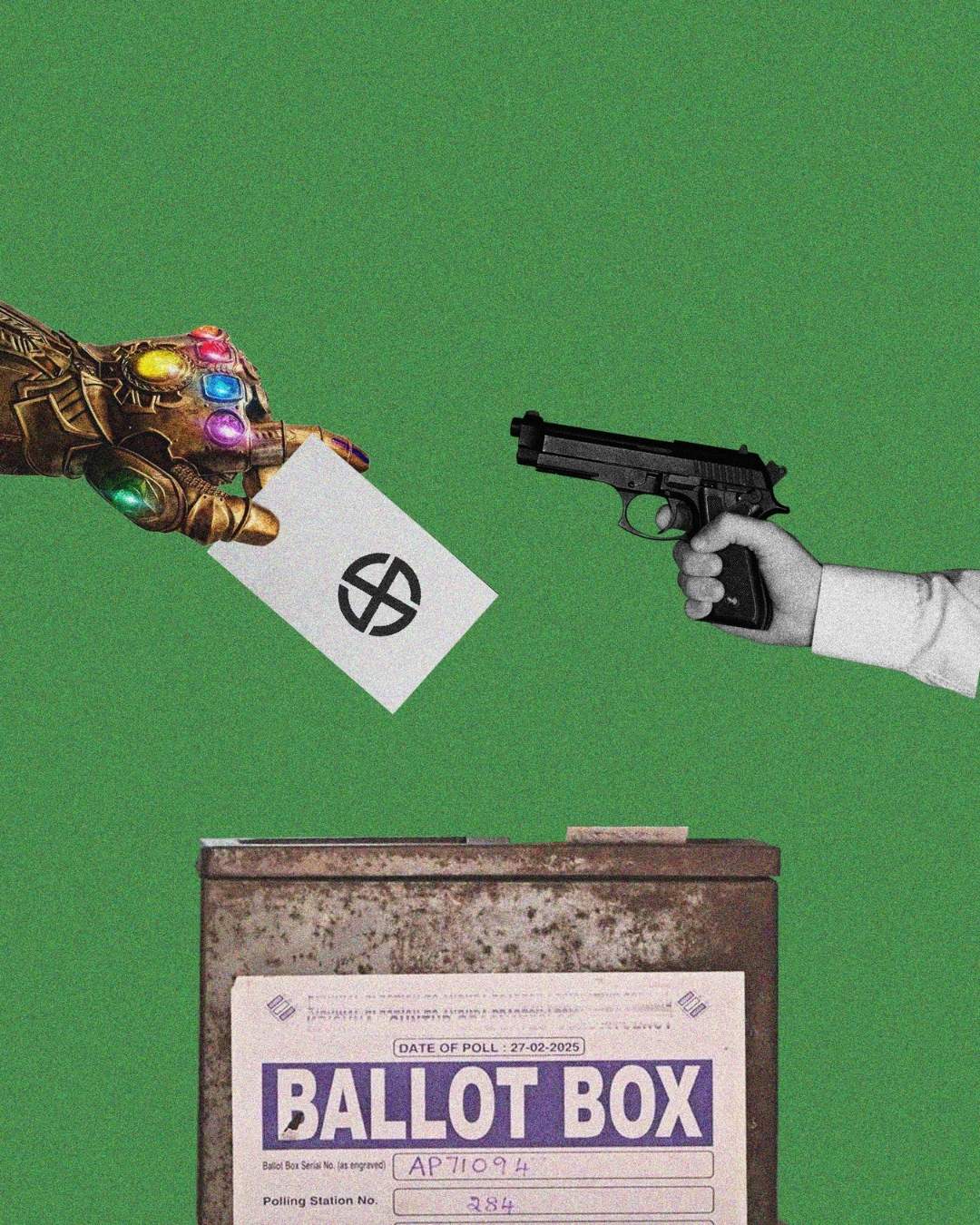“We don't want EVMs, we want ballot paper” Congress President Mallikarjun Kharge called for replacing Electronic Voting Machines (EVMs) with ballot boxes in the recent EVM Vote chori (stealing) controversy. Leaders from Shiv Sena (UBT), RJD, and SP also demanded the same. At first glance, this may appear as a quick solution to rising distrust in EVMs. But before rushing to embrace this ballot box nostalgia, we must ask: is this really a worthy solution or a lazy solution that takes us to a brutal history? We need to reflect on our memories of the ballot-box era and question whether this nostalgia is rooted in deception.
India is a peculiar democracy. Its Constitution pulls the Indian society, that is, to borrow the words of Dr. Ambedkar, “A population which is hidebound by caste, a population which is infected by ancient prejudices, a population which flouts equality of status and is dominated by notions of gradations in life, a population which thinks that some are high, that some are low”¹ to the idea of liberty, equality, and especially fraternity.
Our political democracy is not backed by social democracy, our social morality is up against constitutional morality. Dr. Ambedkar on many occasions stressed that to make our political democracy successful, we need to bring about social democracy “A democratic form of Government presupposes a democratic form of society. The formal framework of democracy is of no value and would indeed be a misfit if there was no social democracy.” ²
Vast part of rural India works according to the de-facto laws of feudal lords and caste panchayats. They are parallel governments and their legitimacy is drawn from the caste-ridden social setup and its flawed sense of fraternity.
Any debate on elections in India must take this social reality into account.
BALLOT BOX DEMOCRACY - A HISTORY OF VIOLENCE
Kanshi Ram, the founder of BSP, used to say in Parliament that “Ameeron ke note se garibon ke vote kharide ja rahe hain, democracy kharidi ja rahi hai.” (From Richman's money, the vote of poorman is bought, they democracy is on sale). In their initial years, BSP as a political party that represented the Ambedkarite ideology, had to face these caste mafias. When BSP was fighting its elections for the first time, Mayawati, the former Chief Minister of Uttar Pradesh, herself walked through the Scheduled castes voters to prevent violence.
After independence, especially in the era of the 70s and 80s, one would witness more henchmen than the state on the ground during elections. The villages of Scheduled Castes and the most backward castes would be cornered off. Entire polling stations would be hijacked, trucks carrying the ballot box would be turned off. The elections were virtually commissioned by the feudal mafias of dominant castes.
Looking at archives of news reports of 1985 Bihar Elections. In 1985 Bihar assembly elections, polling had to be suspended in 156 booths due to reports of booth-capturing at Gun point, large scale bogus voting, snatching of ballot box and blatant looting of ballot boxes.⁶
A reporter mentioned “This is not the first time criminal elements tried to scuttle the election exercise”..“With politicians of all hues brazenly employing mercenaries to do their dirty work..”
In ballot box democracy, terrorising the voters was the norm. Voters, especially from backward sections, would be forced to return from the polling station without exercising their right to vote upon being convinced by "Babu Sahib" (the feudal mafias.)
Back then, elections were mostly fought with the help of 3 Ms — money, media and mafia.
The politicians and the major political parties were convinced that to win elections we need mafias on our side while they already had the social capital that is the money. Caste played a major factor in the equation. While the caste feudal lords already had the muscle power and social capital, the upper caste politicians left no room to exploit this and make a joke of democracy.
In 2001, Scheduled castes in Tamil Nadu experienced large scale violence during local body elections held by Ballot box. “The violence perpetuated on Dalits by caste hindus groups in many remote villages had a similar purpose - to Subvert Dalits' right to participate in the electrol process.”⁷
Moreover, “Elections could not be held in village Panchayats reserved for Dalits..because no nomination could be filed in the face of threats from Dominant caste-Hindu groups in these villages”. ⁷
The numbers tell the story, let us take the case of Bihar for our study of history. In 1985 the Union Minister of State for the Department of Home responded to Parliament upon a question about polling-related violence. According to them, there had been 161 instances of electoral violence, of which 119 took place in Bihar alone.³ Later, the data provided by government institutions said that every new election in Bihar broke the record of previous elections in terms of violence during the poll. The Vidhan Sabha elections of 1985 witnessed 1370 instances of violence which killed 69 people and left 252 injured.⁴
Notably, the violence did not only exist in the time of Lalu Prasad Yadav, which is the popular narrative. The violence was very much there during the time of Congress as well. During the time of then-Bihar CM K.B. Sahay, the Congress was known to make fun of election practices. The Congressmen can be said to have appointed “professional” henchmen to terrorise the voters. There was a popular slogan that went those days “Sahay se note lo, Mahamaya ko vote do.” (Take money from Sahay, vote for Mahamaya) ⁴
The feudal lords started organising their private militants. They started thinking of themselves as the kingmakers for the "honourable lawmakers." These times established the practice of muscle power in Bihar and other parts of India. Even a barely known person with social capital envisioned becoming a politician with the help of feudal mafias, and many feudal mafias in fact entered politics.
CAN WE AFFORD TO GO BACK?
These quick lessons from history should make us ponder if India can really afford to go backward and adopt the ballot box once again, when India still considers law and order a major challenge.
Coming to the EVM, they must serve the purpose they were adopted for. And it is a polity issue for us to address. We need serious reforms in the EVMs and to make them more transparent, especially in the era of PM Modi’s so called “Digital India.”
The issue, ultimately, is one of institutional credibility. The Election Commission is independent of the Government, it's a branch of our state. It's an institution no less important than the Supreme court. The constitution of India, asserts it's autonomous status. Therefore, different wings of our state, such as the Govt, Opposition and the Supreme court should have equal rights in its appointment.
Replacing EVMs with ballot boxes may feel like an easy answer, but it risks dragging our democracy back to an era of mafia dominance, caste terror, and political violence. From our past experience, the danger is not hypothetical. It is a lived memory,and our republic may not survive repeating.

